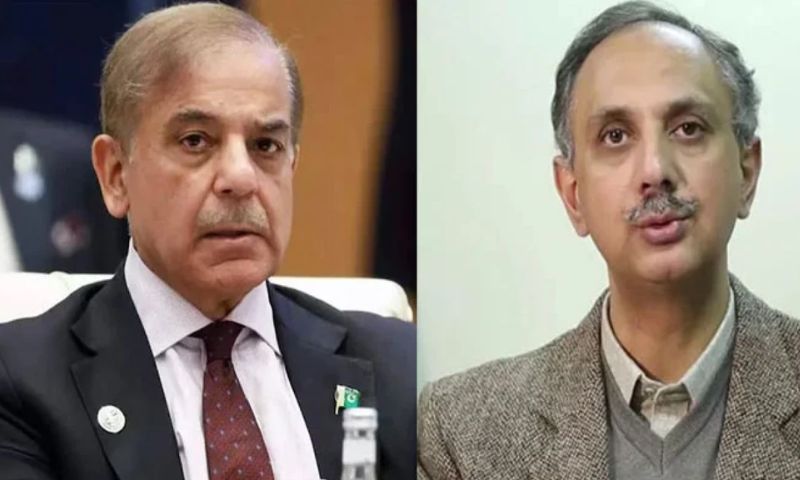Hafeez Ahmed Khan
In a nation where politics is often a tempestuous sea, Shahbaz Sharif’s election as the 24th Prime Minister of Pakistan has stirred both anticipation and controversy. As the dust settles, we dissect the intricacies of this closely contested victory.
Election Mandate and the Shadow of Allegations:
Republic Policy’s revelation that Shahbaz Sharif and his allies hold a mere 1/3rd mandate in the National Assembly raises eyebrows. In stark contrast, the Pakistan Tehreek-e-Insaf (PTI) commands a formidable 2/3rd majority out of the 266 National Assembly seats. The math is intriguing, but the controversy lies elsewhere.
The alleged manipulation of “Form 47” casts a shadow over the electoral process. These forms, reportedly instrumental in securing 1/3rd of the assembly seats, have become emblematic of suspicion. Questions about legitimacy reverberate through the halls of power.
The Triumph and Its Unforeseen Protagonist:
Shehbaz Sharif emerged victorious on a fateful Sunday, wielding 201 votes like a political sword. His opponent, Omar Ayub Khan from the Sunni Ittehad Council (SIC), managed a respectable 92 votes. The National Assembly Speaker, Sardar Ayaz Sadiq, made the announcement, sealing Shehbaz’s fate.
Yet, the spotlight was meant for another. Nawaz Sharif, the elder brother and political heavyweight, had been poised to reclaim the premiership after the February 8 elections. But fate, veiled in enigma, intervened. Nawaz stepped aside, leaving the path clear for Shehbaz. The fraternal dynamics at play remain a subject of intrigue and speculation.
Shehbaz’s Maiden Address:
In his inaugural address to the newly elected House, Shehbaz Sharif confronted the nation’s challenges head-on. Battered by economic woes, political polarization, and social unrest, Pakistan awaited a steady hand at the helm. Shehbaz vowed to steer the ship “back to shore,” invoking maritime metaphors to underscore the urgency.
His vision transcends party lines. Shehbaz recognizes that salvation lies not in partisan bickering but in collective resolve. “We must change our country’s fate,” he declared, rallying the parliamentarians. Journalists, intellectuals, politicians, and religious leaders—all are summoned to this national mission. The ship’s crew, diverse and capable, must navigate treacherous waters.
The Opposition’s Dissonant Chorus:
The opposition benches erupted as Shehbaz expressed gratitude to his brother and coalition partners. PTI-backed lawmakers from the SIC hurled accusations, branding the Sharif siblings as “thieves.” Their claim: the PML-N had stolen the public’s mandate. The echoes of dissent reverberated, punctuating the historic moment.
Shehbaz Sharif’s second tenure as Prime Minister begins with a clarion call for unity. As Pakistan grapples with its destiny, he invokes our shared identity as Pakistanis, Muslims, and human beings. The ship sails not on party banners but on the collective conscience of a nation yearning for stability.
The voyage ahead is fraught with challenges—the economy, security, and governance—but Shehbaz’s compass points resolutely toward the shore. Whether he steers the ship to safe harbor or into uncharted waters remains to be seen. For now, the nation watches, hopeful yet wary, as the 24th Prime Minister sets sail.
A Critical Assessment
Shahbaz Sharif, the newly elected Prime Minister of Pakistan, assumes office at a critical juncture. A delicate balance of expectations, controversies, and complex political dynamics marks his tenure. Let us delve into the challenges he faces across various domains:
Economy: Reviving the Ailing Giant
Challenge: Pakistan’s economy grapples with inflation, fiscal deficits, and a weakening currency. The balance of payments crisis looms large, demanding urgent attention.
Expectations:
- Stabilization: Shehbaz must stabilize the economy, attract foreign investment, and enhance export competitiveness.
- Job Creation: Job opportunities need expansion to alleviate unemployment and poverty.
- Infrastructure: Investment in infrastructure projects can stimulate growth.
Governance: Navigating Political Volatility
Challenge: Political volatility, street protests, and mass resignations characterize the landscape. Shehbaz must steer the ship with a steady hand.
Expectations:
- Efficiency: Streamlined bureaucracy, transparent governance, and effective service delivery are paramount.
- Accountability: Balancing accountability with stability is crucial.
- Decentralization: Empowering local governments can enhance governance.
Human Rights: Upholding Liberties
Challenge: Pakistan faces human rights concerns, including freedom of expression, minority rights, and women’s empowerment.
Expectations:
- Rule of Law: Shehbaz must ensure an independent judiciary and protect citizens’ rights.
- Minority Rights: Safeguarding minorities’ rights and promoting religious tolerance are vital.
- Gender Equality: Empowering women through policies and legislation is essential.
Political Development: Coalition Realities
Challenge: Shehbaz leads a coalition government, necessitating consensus-building and compromise.
Expectations:
- Coalition Management: Balancing diverse interests while maintaining stability.
- Policy Consensus: Crafting policies collaboratively to address national challenges.
- Opposition Engagement: Constructive dialogue with the opposition is crucial.
Controversy of Rigging Allegations:
Challenge: Shehbaz’s election amid rigging allegations casts a shadow on his legitimacy.
Expectations:
- Transparency: Addressing allegations transparently and restoring faith in the electoral process.
- National Unity: Bridging divides and fostering national unity despite controversy.
- Inclusive Leadership: Shehbaz must lead beyond party lines, embracing all Pakistanis.
Shehbaz Sharif’s journey as Prime Minister is fraught with challenges, but it also holds promise. His hands-on style of governance, commitment to collective responsibility, and ability to navigate stormy waters will determine Pakistan’s course. As the nation watches, hope mingles with caution, and the 24th Prime Minister sets sail.
Please, subscribe to the YouTube channel of republicpolicy.com

















































